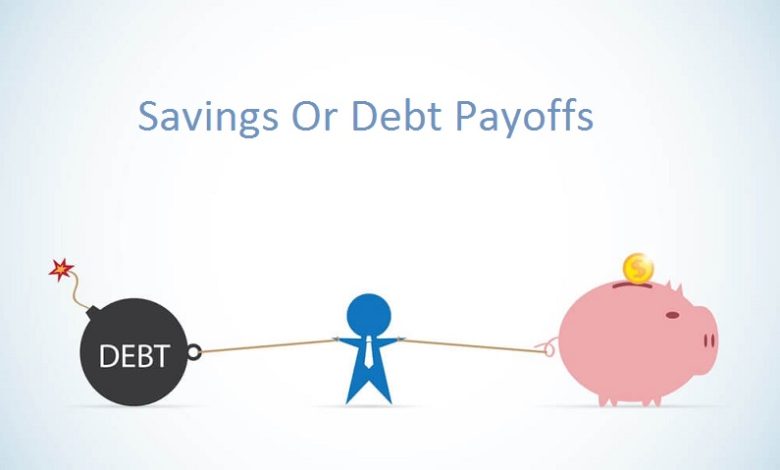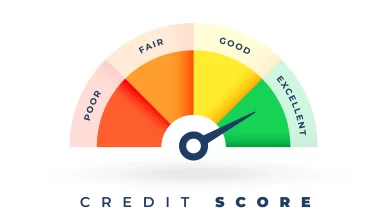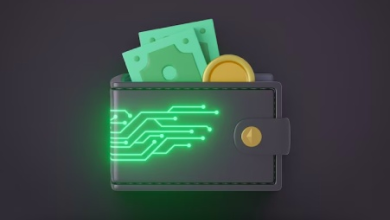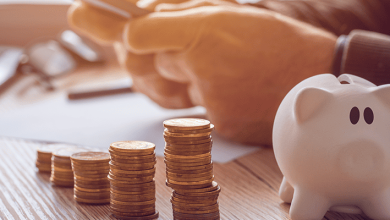
Generally speaking, paying off debts makes much more financial sense than saving money. Credit card interest rates frequently exceed 25%. Rates for personal loans are probably less expensive.
However, if you seek instalment loans for bad credit, approach a direct lender to get one. The rate you pay on your borrowing will typically be higher than the rate you receive on your savings.
This is even if you are fortunate and are able to secure a loan for as little as 3%.
Even the greatest easy-access savings accounts currently offer returns on your money that are less than 1.5 per cent.
Therefore, putting £100 into your savings account could seem fantastic. However, you will ultimately save money by paying off a credit card bill if you are paying a lot more interest on your debts than you can earn by saving.
If you are undecided between debt payments and savings, this article should help you prioritise your actions according to your situation.
Is repaying your debt the first priority?
Exceptions to the rule
There’s always an odd exception to every rule made. Here are some exemptions you might want to consider.
1. Low-interest rates on debts
In some cases, the interest rate on borrowing could be less than the interest rate on savings. Here, it does make sense if, for instance, you wish to borrow money without any interest payments.
One possible example is a credit card offering 0% interest on purchases for up to two years.
An argument is that you should take advantage of interest-free borrowing for as long as possible. This is possible, provided you have the funds to pay off the debt before interest starts to accrue.
In some circumstances, paying off debts and saving money at the same time may make sense. You can do this particularly if the debts are manageable and reasonably priced.
Few advise you not to save money until your mortgage gets the full payment. It would be foolish to advise against saving for the duration of your mortgage.
The decision is logical, even though you may pay more interest on your house loan than you do on your savings. It is important to pay off those expensive obligations, like credit card debts, because the longer they remain unpaid, the larger they will become.
2. Student Loans are an exception
College loans are yet another noteworthy exception. This is because student debts function differently from other types of loans. The repayments are based on your income rather than the amount you owe.
Spending more money on student loans than required is a waste of money. The way they are set up makes it unlikely that most borrowers would ever pay them off in full.
3. Paying off your debts on a priority
The most effective way to begin is by comparing the interest rates on your debt and the interest you’ll collect from saving.
Put as much money as you can toward paying off debt before starting your savings, especially if the interest you pay is more than the income you’ll earn.
It’s usually advisable to pay off debt from short-term borrowing choices as quickly as you can, such as credit cards, shop cards, and overdrafts.
It’s important to consider how much money you would have on hand in case of an emergency. Your emergency savings account should be able to pay for your living expenses for at least three months.
However, in the interim, having access to the debt via a credit card can at least soothe your mind and help you get closer to budgeting.
4. The right time to put savings ahead of debt
You cannot pay off all debts right away. For instance, you might have a repayment schedule in place with your bank for a mortgage or personal loan.
Any additional funds will be there toward your savings after you’ve paid for those repayments. You might, however, wish to start an emergency fund if you don’t have a clear goal in mind.
Once you have an emergency fund, think about your other priorities. If you wish to:
- Increase your savings contribution
- Make extra payments on your personal loan or mortgage – check before you do this; there could be some extra fees attached
- Consider making long-term investments
- Increase your pension to benefit from tax deductions
All things considered, should you overpay your mortgage rather than put money aside?
Your largest debt is probably your mortgage. It seems sensible that many of us desire to pay off our home loans as quickly as possible if we can, given that the maturities are frequently 20 years or longer.
Most lenders will let you make extra payments totalling roughly 10% of your outstanding debt each year without being penalised. You can use increased monthly payments or one-time lump sum repayments to cover these additional funds.
By accelerating your loan repayment in this way, you can pay off your mortgage earlier and avoid paying thousands of dollars in interest.
Here’s an example:
Consider a £300,000 loan with a 20-year repayment period and a 4% interest rate. A monthly overpayment of £100 would result in the following:
- Decreased length of your mortgage by 18 months
- Over time, savings of $11,615 in interest
- As an alternative, if you received a windfall and could pay off your mortgage in full with a lump sum of £20,000, you would:
- Reduce the length of the mortgage by 1 year, 11 months:
- In the long run, you would save £22,804 on interest payments.
- Reduce the length of the mortgage by 1 year, 11 months:
Savings like these are considerable, but you should compare them to the advantages of paying off your mortgage early with other options.
If you invest all of your extra money on your mortgage, for instance, you might not able to save for your children’s education or take international vacations.
The most economical choice is probably paying off your mortgage. However, consider what other claims you could have on your money, as it is also the money you cannot get back.
5. Should you save for an emergency fund?
While paying off debts typically takes precedence over saving, there is still another thing to take into account: your emergency fund.
Most experts advise keeping three to six months’ worth of salary in an accessible savings account. This gives you peace of mind that you can handle a large unexpected payment or fund your bills if your situation changes.
However, how valuable this money pot is, differs from person to person.
One rather contentious choice for folks with emergency reserves is to use the funds to settle expensive debts like credit cards before starting again with savings.
If you had an emergency bill that you couldn’t pay with your paycheck or your new savings account, you could then utilise a credit card. You could even be able to apply for a new card and benefit from a 0% interest offer.
Most experts advise keeping three to six months’ worth of salary in an accessible savings account. This gives you peace of mind that you can handle a large unexpected payment or fund your bills if your situation changes.
However, not everyone will be happy with the idea of giving up their whole financial safety net.
Conclusion
Even if there is some flexibility in how much you can pay back each month, such as with a credit card’s minimum payments, it doesn’t imply you should use it. These loans cost you more overall the longer you take to pay them off.
Those who wish to borrow can always get easy loans for bad credit from a direct lender.
Make sure you have enough money to cover all of your usual monthly expenses before you begin paying off your most expensive loans. Writing a budget is one way to achieve this.





